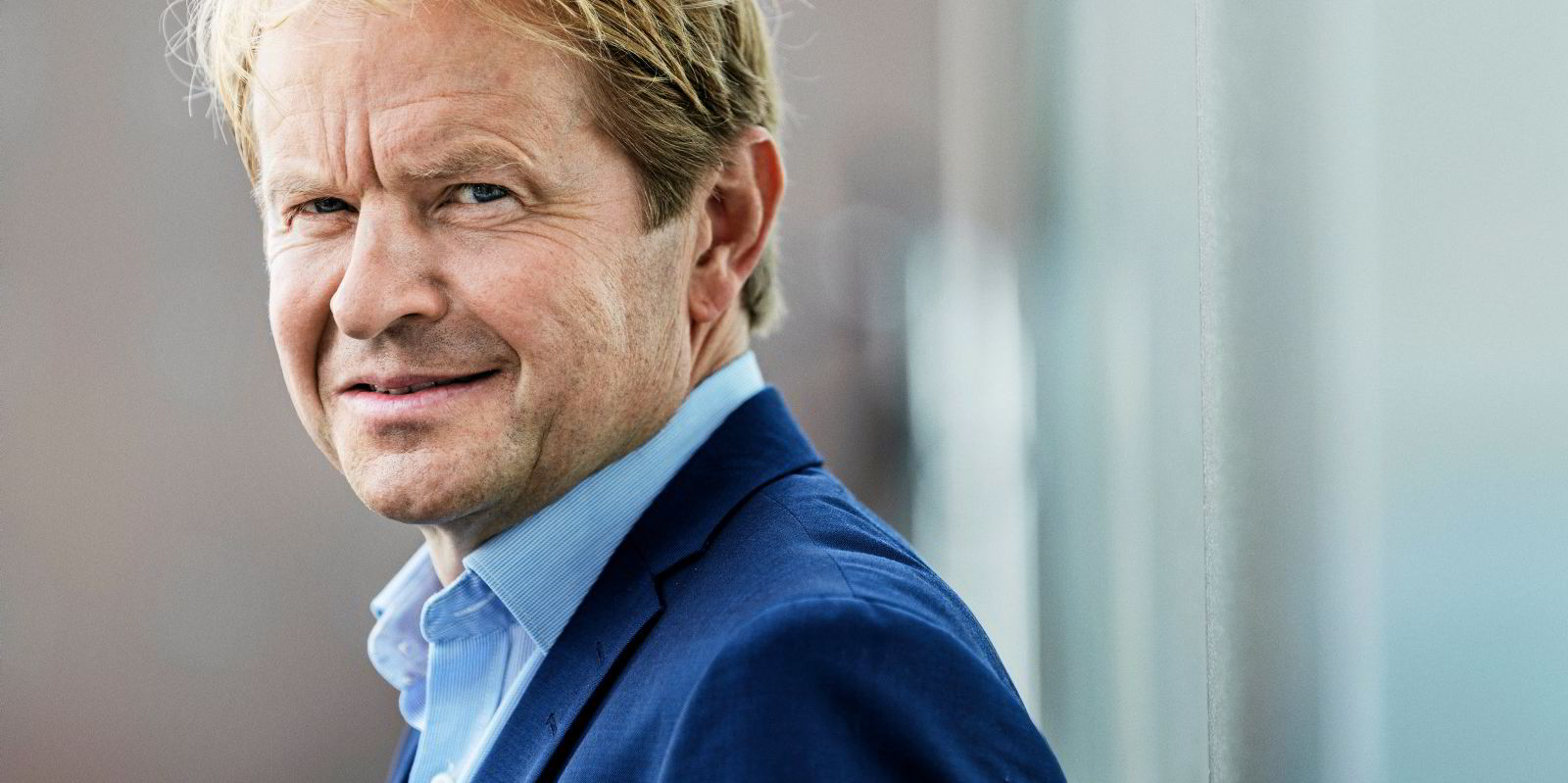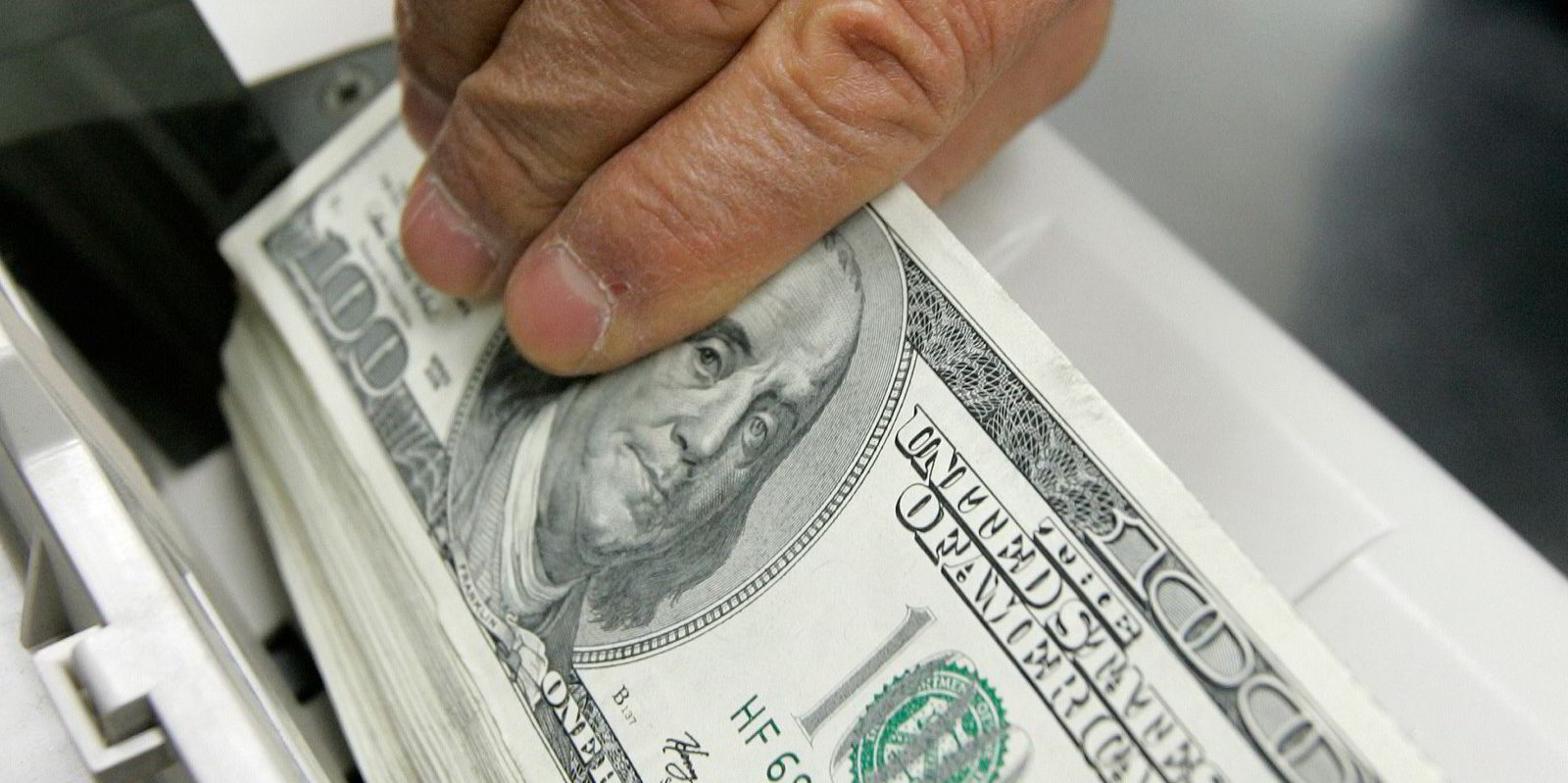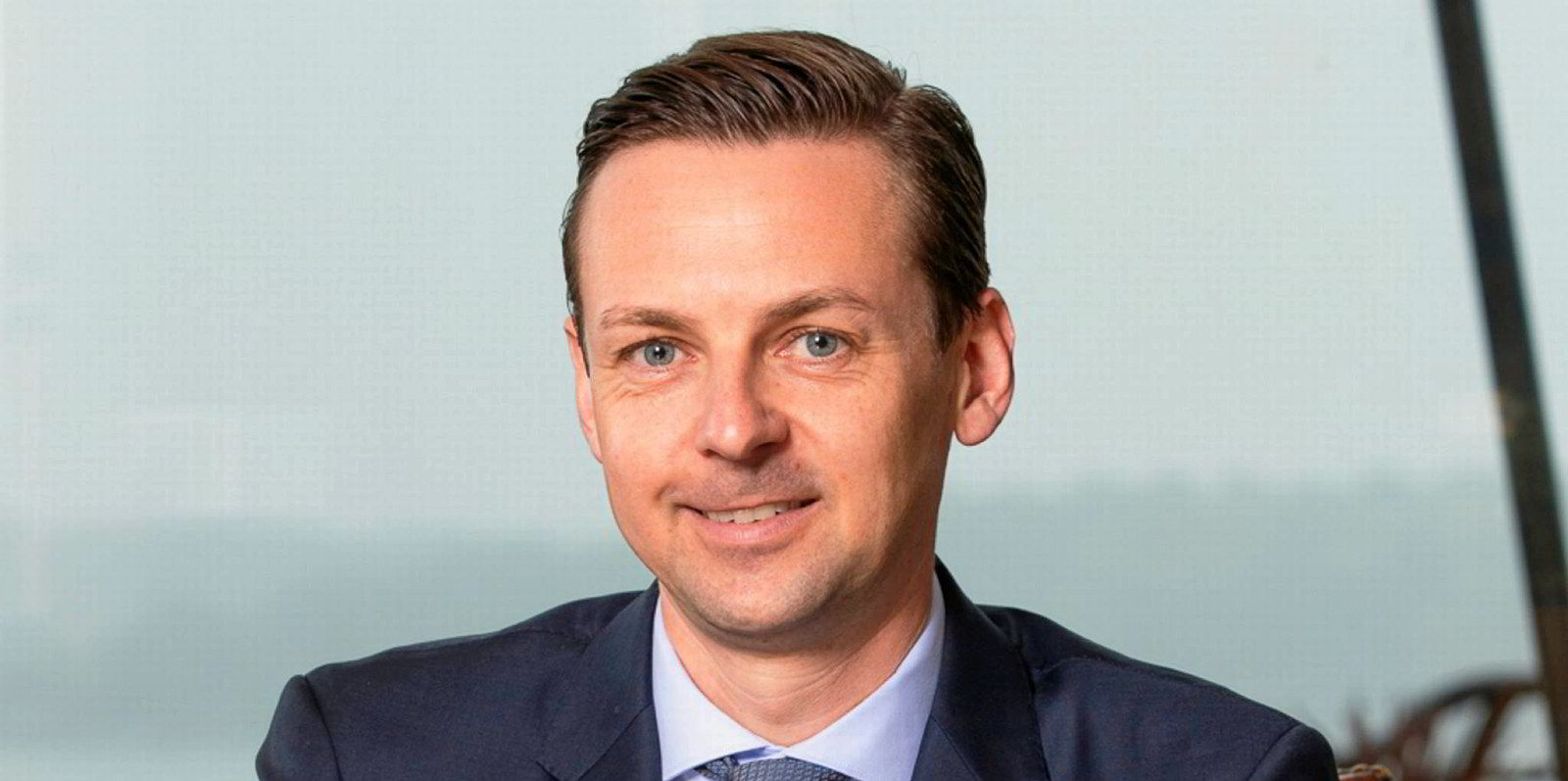Is there really such a thing as an “embarrassment of riches”?
If so, AP Moller-Maersk is blue on the outside but blushing on the inside. The Danish liner giant turned in nearly $20bn in net profits for the year just past and expects something similar for the year ahead. Around 90% of the bottom line came from ocean shipping — its core business — which makes that the biggest annual profit in shipping history.
So is Maersk embarrassed?
You can never be sure unless you’ve walked a mile in another’s excruciatingly lucrative shoes. But folks say the surest sign of an embarrassment of riches is spending it in a hurry. That looks like what’s happening.
Embarrassment can make people and companies do funny things.
In particular, it can make them deplete cash reserves right ahead of a huge and totally predictable capital expenditure.
Maersk is just the biggest of those who have announced dividend bonanzas, share buybacks or major expenditures for acquisitions of companies they may not need — all this while the bankers and accountants and regulators are watching their every move and grading them on climate sustainability.
Shipowners today are just in the starting phase of a historically unprecedented round of investments in decarbonisation that will make the installation of scrubbers and ballast water treatment systems look like slapping on an extra coat of paint. And when it comes time to pull the trigger on the big decarbonisation investment — when shipowners finally know what kind of ships to order for the future — the present spike in earnings in some shipping sectors will have passed.
“When that time comes, I think a lot of these companies will have to get access to credit to fund capital expenditures, or else it will be hard for many of them to continue as transportation companies,” said Kristian Andersen, managing partner at Oslo environmental, social and governance (ESG) consultancy The Governance Group.
“It may be cheaper to wait until then and go to the market for bond financing. But if you spend your capital now, will you be in a strong enough position to make those investments in five years’ time? Many shipping companies may find that they have been too aggressive in paying dividends.”
It’s not just the long run that counts. These days, a shipowner’s current preparations for future decarbonisation already count towards its financial credibility. Especially the Poseidon Principles banks, which demand reviews and disclosures in line with the requirements of bodies such as the Task Force on Climate-Related Financial Disclosures.

The Carbon Disclosure Project, International Sustainability Standards Board and an alphabet of other initiatives are pushing for transparency as well.
As for Maersk, Andersen underscored that it has a huge staff of experts at work on ways to decarbonise its fleet. Nor is Maersk’s dividend policy even the most aggressive, compared to those of some dry bulk shipowners.
Maersk’s annual report specifies a dividend payout policy of 30% to 50% of its adjusted net result. This year the board has proposed to pay out 40%, or some DKK 46.8bn ($7.1bn). It is also committed to buying back some $10bn-worth of its own stock from November 2021 to November 2025.
One other way Maersk has been atoning for its embarrassment is by buying landside logistics companies — not always a winning investment for Maersk historically.
“I’m not saying we will never overpay for an acquisition but [Maersk’s current corporate] structure creates more capital discipline,” controlling shareholder and incoming chairman Robert Maersk Uggla told the Financial Times recently, defending some $6bn-worth of logistics acquisitions.
But dividends and buybacks are the bigger temptation, and especially hard to resist when the calls for them are coming from inside the building.
“All shareholders including the controlling shareholder have a desire for dividends and share buybacks. That was different in the past,” Uggla told the FT, referring to the days before the sale of Maersk Energy and the demerger of Maersk Drilling.
ESG expert Andersen acknowledged that pressure to distribute earnings may be too much for many corporate boards to overcome, while decarbonisation remains out of reach.
“If you don’t know the right thing to do now, maybe the easiest thing to do is to pay out the dividend and hope for the best when the time comes,” he said. “But as a long-term strategy, that’s not so good.”






